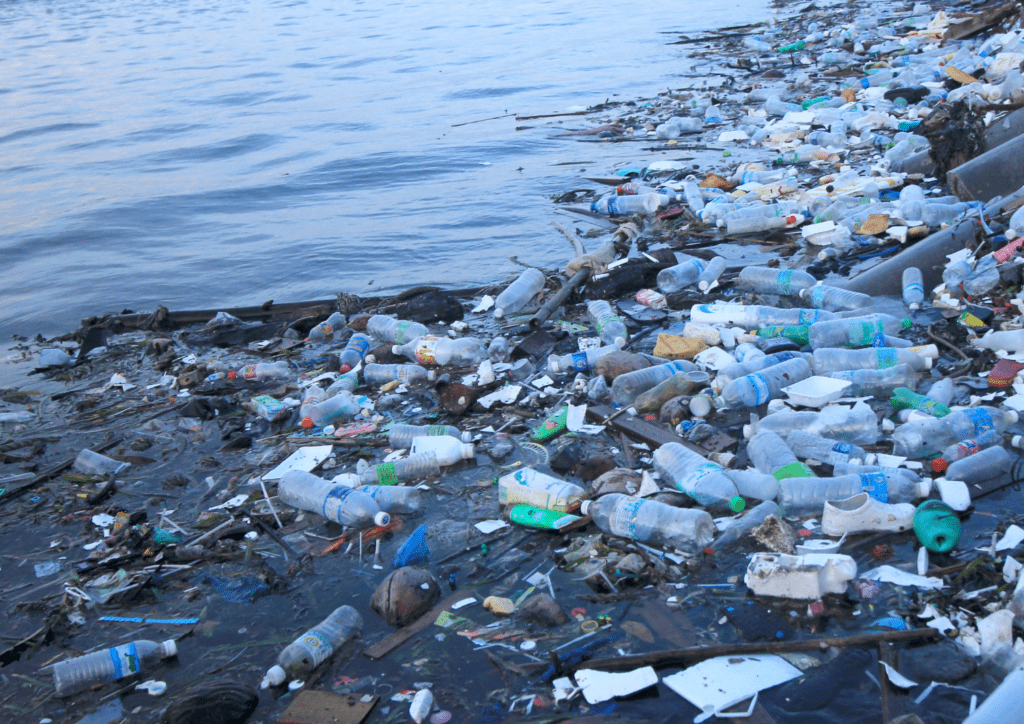The Canadian government must take a leading role at the fourth negotiations in Ottawa next spring
Toronto | Traditional territories of the Mississaugas of the Credit, the Anishinaabeg, the Haudenosaunee, and the Wendat – Despite compelling calls for real action from impacted Global South countries and Indigenous Peoples, a week-long United Nations negotiation session in Nairobi made little progress to lay the groundwork for an effective international treaty to end plastic pollution.
Progress at the negotiations was obstructed by countries such as Brazil, Saudi Arabia, Iran, China and the United States, who seem focused on delaying real action to deal with the plastics crisis. With at least 143 industry lobbyists attending the talks in Nairobi, it is clear that corporate profits are distorting global efforts to protect communities, including Indigenous Peoples, and ecosystems from plastics.
The Zero Draft that formed the basis of the Nairobi talks ballooned to become a nearly unworkable document after countries opposed ambitious measures while adding a plethora of weak approaches—mostly voluntary actions focused on waste management that won’t address the global plastic pollution crisis.
Key options for tackling plastics are still on the table, but the draft now includes many new options that allow for runaway plastic production while leaving industry off the hook. The real solution is to reduce plastic production because it won’t be enough to simply clean up plastics already in the economy and the environment.
With the short runway to 2025—the expected completion date for the negotiations—Canada must take steps to ensure that these delay and obstruction tactics do not derail the next round of talks, scheduled for April 2024 on unceded Algonquin territory in Ottawa. Far too much time and space has already been given to member states who clearly have no intention of reaching a workable treaty to eliminate plastic pollution in our lifetimes.
The Canadian government must play a leadership role in working toward breaking the negotiation deadlock in the lead up to and during the fourth round of negotiations in Ottawa. The government must also work with the Intergovernmental Negotiating Committee secretariat to ensure that Indigenous Peoples have full access to and fulsome representation at the Ottawa talks. Further, Canada must move forward on domestic actions to:
-
Reduce plastic production and stop subsidizing the oil, gas, petrochemicals, and plastics sectors;
-
protect and expand the bans on harmful single-use plastics; and
-
require and support reuse and refill systems to replace single-use packaging.
Quote by Muhannad Malas, Director of Law Reform at Ecojustice:
The Nairobi negotiations underscored how a handful of powerful countries backed by industry lobbyists are seeking to undermine a much-needed global solution to the plastics pollution crisis that Indigenous Peoples, Global South countries and other impacted communities are advocating for. The next round of negotiations in Ottawa must deliver a foundation for a treaty that would end the plastics crisis by emphasizing the need to cut production and eliminate harmful plastic products and materials.
Quote by Karen Wirsig, Senior Program Manager, Plastics, at Environmental Defence:
The good news is that there appears to be widespread agreement among most of the 163 countries participating in the negotiations to curb plastic production and eliminate harmful products and hazardous chemicals linked to plastics. These are the measures the world needs in order to stop plastic pollution. The bad news is that a small block of about a dozen countries is trying to stall out the negotiations. “High-ambition” countries like Canada must do more to move things forward by the time the talks come to Ottawa, while prioritizing the concerns of Indigenous and frontline communities as well as countries most affected by plastic pollution—particularly those in the Global South.
ABOUT ENVIRONMENTAL DEFENCE (environmentaldefence.ca): Environmental Defence is a leading Canadian environmental advocacy organization that works with government, industry and individuals to defend clean water, a safe climate and healthy communities.
Ecojustice uses the power of the law to defend nature, combat climate change and fight for a healthy environment. Its strategic, public interest lawsuits and advocacy lead to precedent-setting court decisions, law and policy that deliver lasting solutions to Canada’s most urgent environmental problems. As Canada’s largest environmental law charity, Ecojustice operates offices in Vancouver, Calgary, Toronto, Ottawa and Halifax.
– 30 –
For more information or to request an interview, please contact:
Lauren Thomas, Environmental Defence, media@environmentaldefence.ca, 647-687-2687
Eric Wright, Ecojustice, ewright@ecojustice.ca, 604-685-5618 ext. 525





